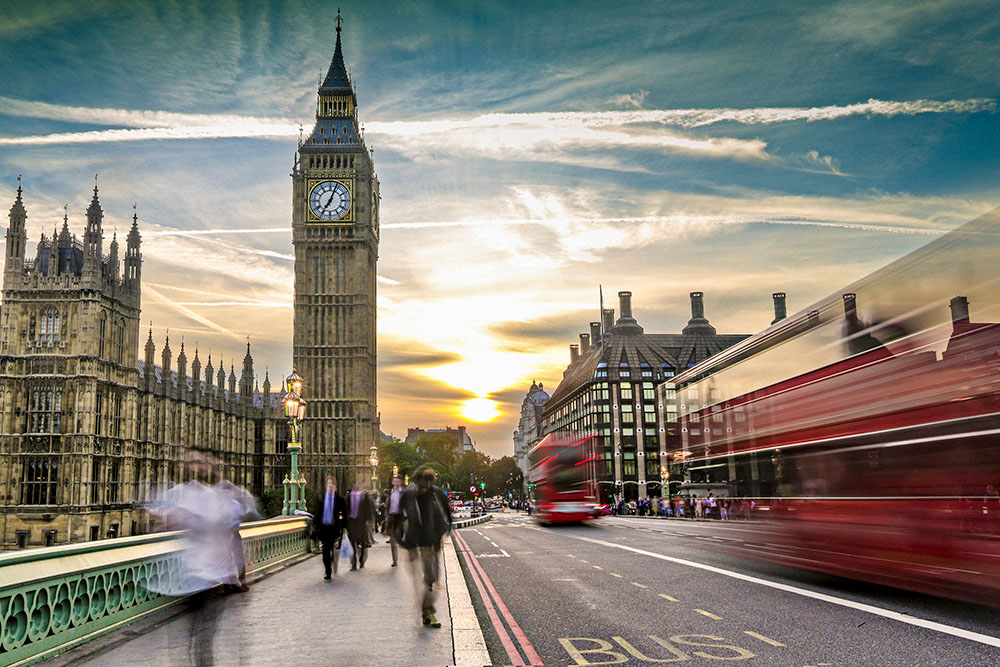What the Autumn Budget means for the logistics sector
04 Nov 24
Read more →

World leaders aren’t the only attendees tasked with tackling the climate crisis. Businesses across the planet have been asked to put forward proposals and policy ideas to inform the adoption of greener industrial practices. With supply chains accounting for more than 50 percent of total global emissions, now is the time for logistics operations to heed the warnings of COP27 and reconfigure their practices for a more environmentally-friendly tomorrow.
Enhanced visibility is crucial in moving toward a more resilient, carbon-neutral supply chain. Using a technological solution – for example, a modern and effective transport management system (TMS) should be a key consideration when addressing the environmental impact of your supply chain.
At COP27, UK Prime Minister Rishi Sunak reiterated the country’s commitment to the green revolution by promising to turn the nation into a clean energy superpower. The Prime Minister’s strategy outlined a new target of up to 24GW of nuclear power by 2050, and up to 50GW of offshore wind by 2030. It additionally highlighted that solar could grow five-fold by 2035.
This follows on the recent action that has enabled Britain to cut carbon emissions faster than any G7 country. Renewables like wind and solar already make up more than 40% of the country’s energy supply – a four-fold increase since 2010.
To achieve sustainability goals, reducing supply chain emissions is critical. IoT technology has given customers a detailed view of logistics operations. With events like COP27 raising the public’s environmental concerns, businesses need to make a concerted effort to decarbonise their processes.
Considering that supply chains are responsible for such a large percentage of pollution, tackling the sector’s emissions is an opportunity to multiply the impact on climate change. Unfortunately, the complex nature of transport networks makes it difficult to drive change, hence why digital technology will play a significant role in enhancing the performance of supply chain decarbonisation.

Transport managers have an essential role to play in reducing their carbon footprint. Read on to learn more details about the environmental benefits an integrated transport system can offer.
1. Defining routes
A TMS can propose different routes to optimise the distance covered, while taking into account the constraints (drivers’ working time, delivery deadlines and nature of the roads). Strategic route planning can result in fewer miles driven and less emissions.
2. Limiting empty miles
A TMS can also capitalise on the recovery of pallets and goods, at different stages of the journey, to reduce empty returns of vehicles. By maximizing space, you can reduce miles, cut net emissions and decrease your supply chain’s impact on the environment.
3. Supply chain transparency
Companies must concentrate on supply chain collaboration to make the advancements required to meet COP27’s commitment. You need to make sure that you and your suppliers are on the same page – the key to this is end-to-end supply chain visibility. Sharing the right data derived from a comprehensive TMS empowers operations with the visibility to mitigate business risks. Interconnected supply chains require true multi-enterprise collaboration to meet the challenges of decarbonising and reducing emissions.

As leaders warn us that the world is “one minute to midnight” on its efforts to tackle climate change, it is clear that we need to make supply chains examples of exemplary social and environmental responsibility. By improving loading rates, reducing the number of vehicles on the road and optimising the distance travelled, a comprehensive TMS can help companies reduce greenhouse gas emissions. Collaboration and knowledge-sharing across the industry will also be key in addressing the sustainability challenges we continue to face.
Request a TrackTrans demo and take the first steps toward a sustainable future.
See how TrackTrans can be tailored to your business with no obligation. Simply complete the form and a member of our sales team will contact your directly.